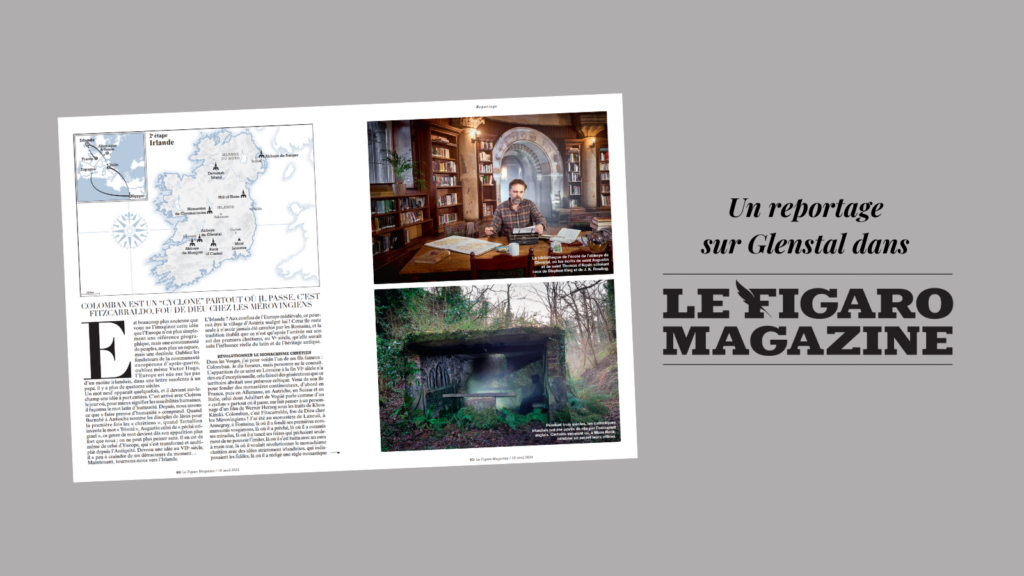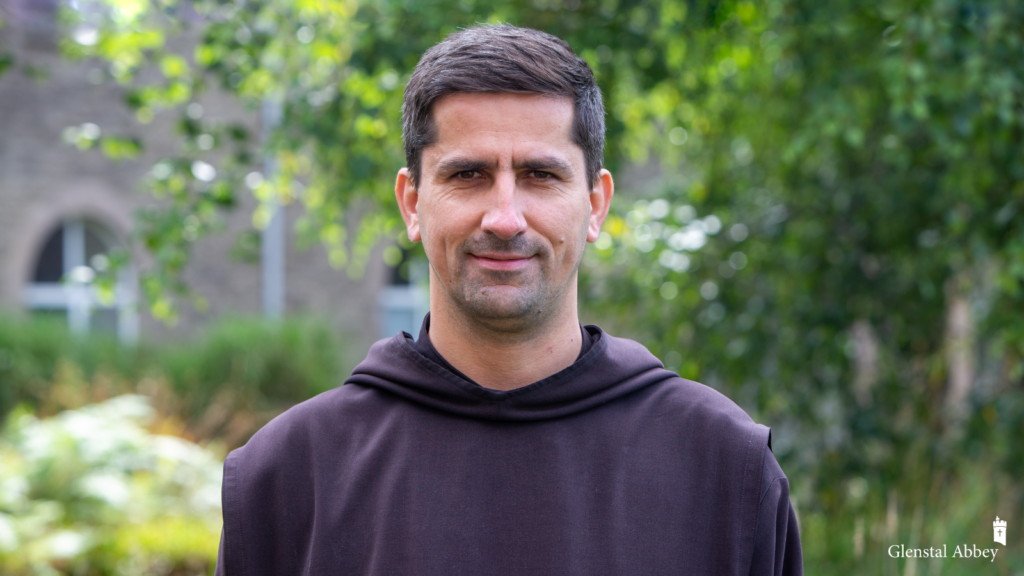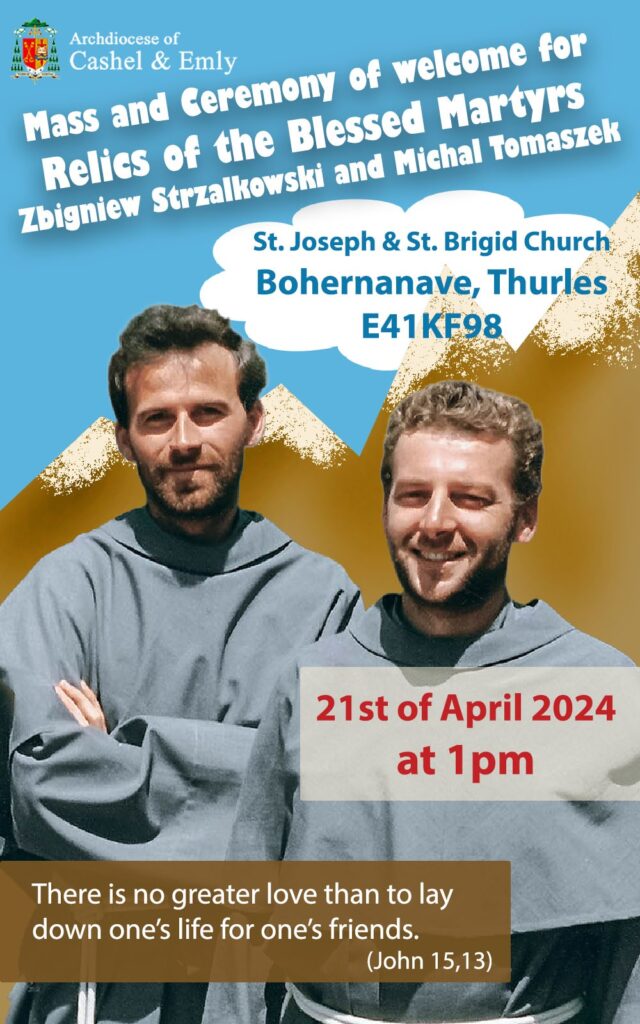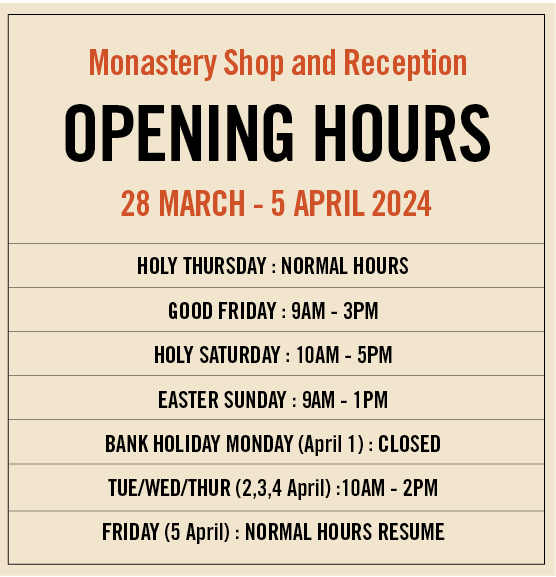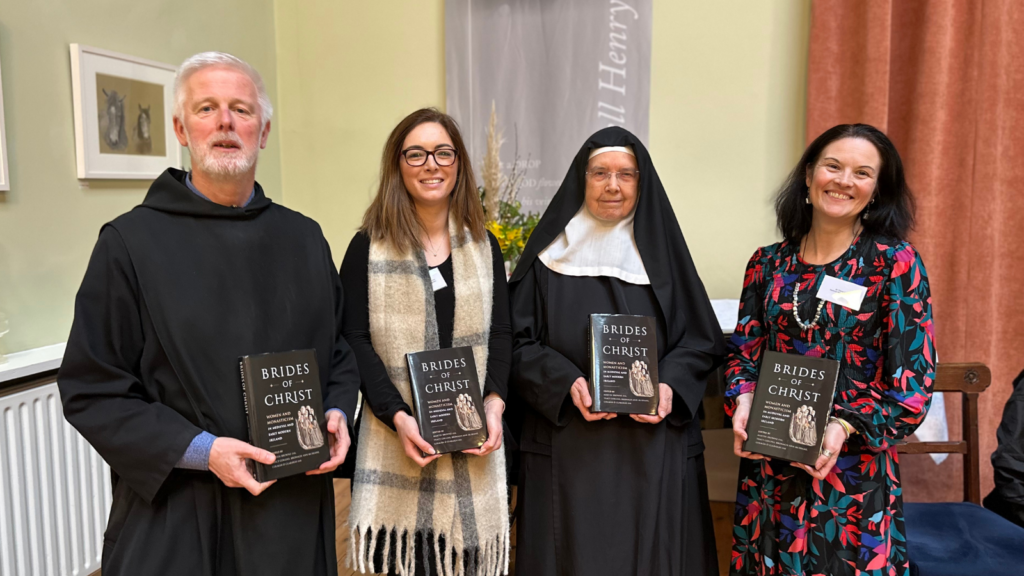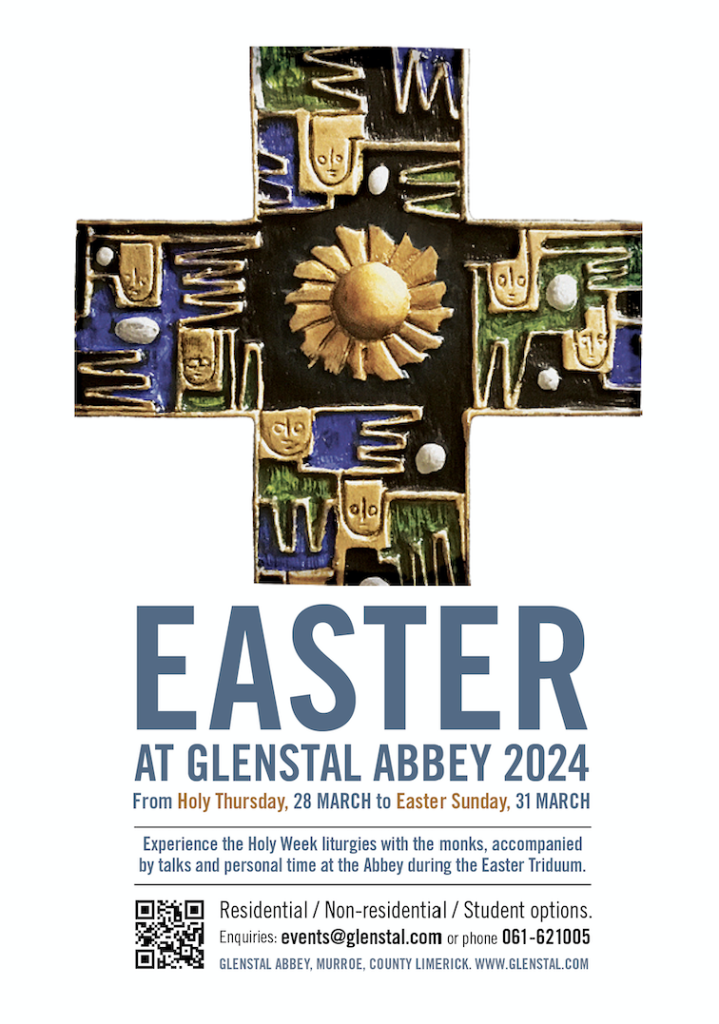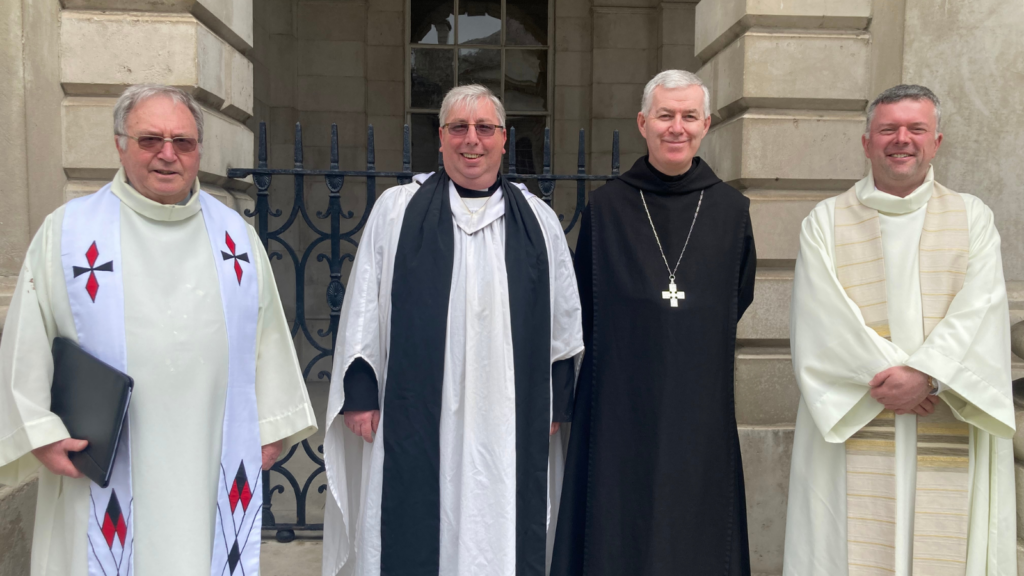
Abbot Brendan Coffey OSB was invited to deliver the sermon at this year’s Service of Commemoration and Thanksgiving at Trinity College Dublin on the occasion of Trinity Monday 2024.
Trinity Monday has long been a special day in the life of the College as its Honorary Fellows, Fellows and Scholars are announced by the Provost in a ceremony referring back to the foundation of the College in 1592.
After the announcement on the steps of the Public Theatre, the Service of Commemoration and Thanksgiving takes place in the College Chapel and is followed by the Trinity Monday Memorial Discourse in the Graduates Memorial Building.
Abbot Brendan preached as follows:
(Check Against Delivery)
Trinity College is a famous place of learning, education and tradition. If you ask anyone in Ireland they will know this. If you mention Trinity College to someone here or abroad, they will also tell you that this is where you go to look at the Book of Kells.
Books, learning and education go together. Wars have been fought over books; they are valuable things. In our digital age we can easily forget that. While some books became works of art and are absolutely exquisite, most were primarily books: storing information, learning and wisdom. In the past books were comparatively rare and people only wrote things down if what they had to say was worth writing down. Perhaps we could learn something from that today, starting with my sermon.
Reading a book is one thing, understanding what you read is another. Jesus was handed the scroll of the prophet Isaiah and he found the place where it is written “The spirit of the Lord is upon me.” He explained that today this text has been fulfilled in your hearing. Well, that put the cat among the pigeons. They were astonished, outraged actually. They even tried to throw him off a cliff. I don’t think that happens very often after a lecture today? The people of Nazareth reacted like this because he said something that challenged their certainties. He didn’t just repeat the same old, same old, he said something completely new and unexpected. Nobody fell asleep during that sermon.
I am a Benedictine monk and I belong to a monastic tradition going back to the sixth century. Monastics and particularly Benedictine monastics, love books. We are hoarders. You should see the rooms of some of my confrères. Monks have always been like this, they kept everything, especially books; even books they couldn’t read or understand, in the hope that one day someone would come along and help them understand.
These people were open and they didn’t see knowledge as something dangerous or threatening. They didn’t necessarily believe and accept everything that came their way either, as some people seem to do today on social media, they exercised their critical faculties and their discretion. They did, however, value knowledge and believed that all forms of knowledge helped reveal the creator of all things. And so St Anselm could say fides quarens intellectum, faith seeking understanding.
It was monastics like this who were responsible for the Book of Kells, the Lindisfarne Gospels and the many manuscripts emanating from centres on the continent. These enlightened people valued learning and left us an invaluable legacy. Of course not everyone back then had such an open mind, but there were enough people who had.
Somewhere down the centuries things changed. We became fearful, like the people of Nazareth. Anything that might seem to threaten our narrow world of certainties was pushed off the cliff. Be that Galileo or Oscar Romero. Today, I am sad to say that this attitude is still alive and well. We might have exchanged one set of certainties for another, but very little has really changed. Anyone who challenges the perceived orthodoxy is immediately taken to the edge of the cliff.
How can we learn if we continue like this? Irrational fear lies behind our recent spate of attacks, violence, arson, and xenophobia. In other countries too we see similar patterns, even in the land of the free and home of the brave. This is why true education, learning and knowledge are essential today. Not a knowledge which is closed in its own discipline, but one which is open to all disciplines.
Winston Churchill once said, “Show me a young Conservative and I’ll show you someone with no heart. Show me an old Liberal and I’ll show you someone with no brains.” Life should teach us lessons, however, we do not need to fear everything and everyone.
Permit me one example from our monastic past. Hermann of Reichenau, or HermanusContractus, was a fascinating individual. His parents Count Wolverad II and Hiltrud were of a noble family from Upper Swabia. His noble birth probably saved his life as a child, together with the fact that he had very loving parents. He was born 18 July 1013 and died on 24 September 1054. He was extremely disabled from childhood, having only limited movement and limited ability to speak. He had a special chair made for him and he was carried around everywhere in it.
At the age of seven, he was placed in the Benedictine Abbey of Reichenau by his parents who could no longer look after him. After he died he was buried with his mother, because he believed it was she who saved his life as a child. To their eternal credit the monks of Reichenau took him in and looked after him. The island of Richenau was the artistic and literary centre of south-west Germany during this period. This island became Hermann’s entire world. The famous Benedictine Abbey which had been founded there in 724, played an important role in scholarship, since it was a centre where manuscripts were copied.
Hermann was an extraordinary individual who studied under the famous Abbot Berno (about 978-1048) in Richenau. Hermann decided to become a monk in 1043, later, and somewhat amazingly, he was elected Abbot of the Monastery after the death of Abbot Berno on 7 June 1048, at the age of 35. He was Abbot for the last 6 years of his life. Despite his disabilities, being confined to a chair and hardly able to speak, he was a key figure in the transmission of Arabic mathematics, astronomy and scientific instruments from Arabic sources into central Europe. He composed works on history, music theory, mathematics, and astronomy, as well as many hymns. He was the first to make the lunar calendar of the Middle-Ages work, a huge scientific discovery that really changed people’s lives for the better.
There are two things, apart from the obvious, that I greatly admire about Hermann. Firstly, very few people have ever heard of him despite his many claims to fame. He was obviously not interested in the limelight, and, secondly, he lived a very full and by all accounts contented life. He wrote most of his hymns later in life after he went blind, as if he hadn’t a sufficient number of difficulties to contend with.
This is what can happen when enough people keep an open mind. When we are willing to listen to an unexpected teacher in the synagogue in Nazareth. When we engage with the stranger among us and learn new things. When we don’t judge a book by its cover, or a person by the colour of their skin, physical abilities, race, creed or nation.
Let us remember that there were indeed many widows in Israel in Elijah’s day and yet he was sent by God to a Sidonian town to the widow of Zarephath. There were many lepers in Elisha’s day, but it was Naaman the Syrian who was healed. Can we not learn from this and overcome our fear? This is a true education.
– Abbot Brendan Coffey OSB, 22.4.24


